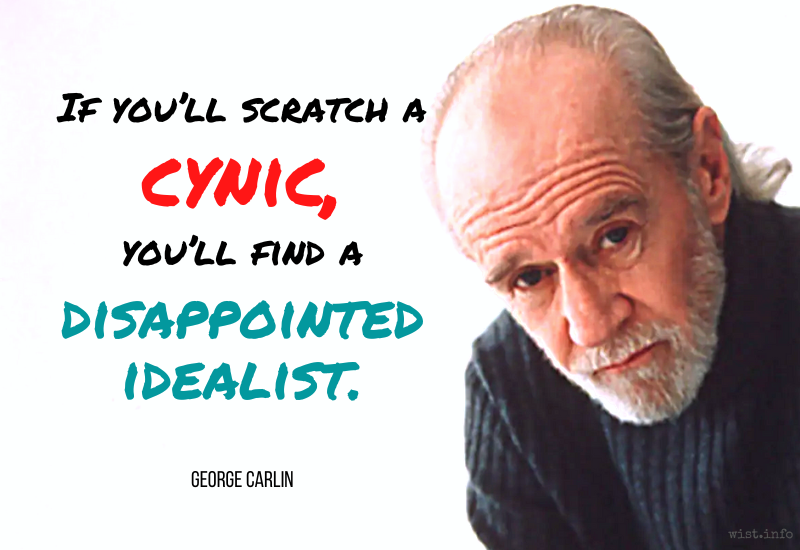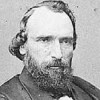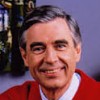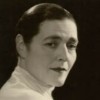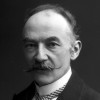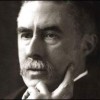For tho’ I know he loves me,
To-night my heart is sad;
His kiss was not so wonderful
As all the dreams I had.Sara Teasdale (1884-1933) American lyrical poet
“The Kiss,” Helen of Troy and Other Poems (1911)
(Source)
Quotations about:
disappointment
Note not all quotations have been tagged, so Search may find additional quotes on this topic.
Maturity is a bitter disappointment for which no remedy exists, unless laughter can be said to remedy anything.
Kurt Vonnegut, Jr. (1922-2007) American novelist, journalist
Cat’s Cradle, ch. 88 [Bokonon] (1963)
(Source)
All who strive to live for something beyond mere selfish aims find their capacities for doing good very inadequate to their aspirations. They do so much less than they want to do, and so much less than they, at the outset, expected to do, that their lives, viewed retrospectively, inevitably look like failure.
Lydia Maria Child (1802-1880) American abolitionist, activist, journalist, suffragist
Letter to John Fraser (1868)
(Source)
Depend upon it, you see but half. You see the evil [of matrimony], but you do not see the consolation. There will be little rubs and disappointments everywhere, and we are all apt to expect too much; but then, if one scheme of happiness fails, human nature turns to another; if the first calculation is wrong, we make a second better: we find comfort somewhere — and those evil-minded observers, dearest Mary, who make much of a little, are more taken in and deceived than the parties themselves.
Jane Austen (1775-1817) English author
Mansfield Park, ch. 5 [Henry Crawford to Mary] (1814)
(Source)
Expectations are resentments waiting to happen.
Anne Lamott (b. 1954) American novelist and non-fiction writer
Crooked Little Heart, ch. 4 (1997)
(Source)
Blessed is he who expects nothing for he shall never be disappointed.
Alexander Pope (1688-1744) English poet
Letter to John Gay (16 Oct 1727)
(Source)
Pope referred to this, in the letter, as "The Ninth Beatitude." He may have used the phrase the previous year in a letter to William Fortescue (the letter is not given a date, but is grouped with a letter from John Gay to Fortescue of 23 Sep 1725). In both letters, Pope indicates he devised the saying many years previously.
Repeated by Benjamin Franklin, without citation, in Poor Richard's Almanack for May 1739.
Hope is itself a species of happiness, and, perhaps, the chief happiness which this world affords: but, like all other pleasures immoderately enjoyed, the excesses of hope must be expiated by pain; and expectations improperly indulged must end in disappointment.
If you’ll scratch a cynic, you’ll find a disappointed idealist.
George Carlin (1937-2008) American comedian
Interview by Marc Cooper, The Progressive (Jul 2001)
(Source)
A documented case of a phrase Carlin frequently used, though not original with him. Often quoted as "Inside every cynical person, there is a disappointed idealist."
To be misunderstood even by those whom one loves is the cross and bitterness of life.
Henri-Frédéric Amiel (1821-1881) Swiss philosopher, poet, critic
Journal Intime (1849-05-27) [tr. Ward (1885)]
(Source)
Scratch the surface of most cynics and you find a frustrated idealist — someone who made the mistake of converting his ideals into expectations.
Peter Senge (b. 1947) American systems scientist, lecturer, academic
The Fifth Discipline, Part 3, ch. 8 (1990)
(Source)
Many of our disappointments and much of our unhappiness arise from our forming false notions of things and persons. We strangely impose upon ourselves; we create a fairyland of happiness. Fancy is fruitful and promises fair, but, like the dog in the fable, we catch at a shadow, and when we find the disappointment, we are vexed, not with ourselves, who are really the imposters, but with the poor, innocent thing or person of whom we have formed such strange ideas.
Abigail Adams (1744-1818) American correspondent, First Lady (1797-1801)
Letter to Hannah Lincoln (5 Oct 1761)
(Source)
Few match their fathers. Any tongue can tell
The more are worse: yea, almost none their sires excel.[παῦροι γάρ τοι παῖδες ὁμοῖοι πατρὶ πέλονται,
οἱ πλέονες κακίους, παῦροι δέ τε πατρὸς ἀρείους.]Homer (fl. 7th-8th C. BC) Greek author
The Odyssey [Ὀδύσσεια], Book 2, l. 276ff (2.276) [Athena to Telemachus] (c. 700 BC) [tr. Worsley (1861), st. 37]
(Source)
(Source (Greek)). Alternate translations:
For few, that rightly bred on both sides stand,
Are like their parents, many that are worse,
And most few better. Those then that the nurse
Or mother call true-born yet are not so,
Like worthy sires much less are like to grow.
[tr. Chapman (1616)]
Few sons exceed or reach their father’s might,
But commonly inferior they are.
[tr. Hobbes (1675), l. 257ff]
Few sons attain the praise
Of their great sires, and most their sires disgrace.
[tr. Pope (1725)]
Few sons their fathers equal; most appear
Degenerate; but we find, though rare, sometimes
A son superior even to his Sire.
[tr. Cowper (1792)]
Few be the children equal to their father:
The most be worse: and few be better men.
[tr. Bigge-Wither (1869)]
For few children, truly, are like their father; lo, the more part are worse, yet a few are better than the sire.
[tr. Butcher/Lang (1879)]
Though not oft is the son meseemeth e'en such an one as his sire.
Worser they be for the more part, and a few may be better forsooth.
[tr. Morris (1887)]
Few sons are like their fathers; most are worse, few better than the father.
[tr. Palmer (1891)]
Sons are seldom as good men as their fathers; they are generally worse, not better.
[tr. Butler (1898)]
Few sons indeed are like their fathers; most are worse, few better than their fathers.
[tr. Murray (1919)]
Few are the sons who attain their fathers' stature: and very few surpass them. Most fall short in merit.
[tr. Lawrence (1932)]
Few sons, indeed, are like their fathers. Generally they are worse; but just a few are better.
[tr. Rieu (1946)]
The son is rare who measures with his father,
and one in a thousand is a better man.
[tr. Fitzgerald (1961)]
For few are the children who turn out to be equals of their fathers,
and the greater number are worse; few are better than their father is.
[tr. Lattimore (1965)]
Few sons are the equals of their fathers;
most fall short, all too few surpass them.
[tr. Fagles (1996)]
You know, few sons turn out to be like their fathers;
Most turn out worse, a few better.
[tr. Lombardo (2000), ll. 300-301]
It is a truth that few sons are the equal of their fathers; most are inferior to their father, and few surpass them.
[tr. Verity (2016), l. 276]
And it is rare for sons to be like fathers;
only a few are better, most are worse.
[tr. Wilson (2017)]
It’s true few men
are like their fathers. Most of them are worse.
Only very few of them are better.
[tr. Johnston (2019), l. 373ff]
I praise your body’s beauty. “Quite enough,”
Galla, you say, “it’s better in the buff.”
Let’s go a-bathing then, but you decline.
Galla, are you afraid you won’t like mine?[Cum faciem laudo, cum miror crura manusque,
Dicere, Galla, soles ‘Nuda placebo magis,’
Et semper vitas communia balnea nobis.
Numquid, Galla, times, ne tibi non placeam?]Martial (AD c.39-c.103) Spanish Roman poet, satirist, epigrammatist [Marcus Valerius Martialis]
Epigrams [Epigrammata], Book 3, epigram 51 (3.51) (AD 87-88) [tr. Barger]
(Source)
(Source (Latin)). Alternate translations:
When ore I praise thy face, hand, leg; far more
(Thou sayst) I'd like thee, if all naked ore;
Yet still thou shun'st the common Baths with me;
Fear'st thou that I should not be lik'd by thee?
[tr. May (1629), 3.50]
When, Galla, thy face, hands, and legs I admire,
Thou say'st, I, when naked more pleasing shall be.
Yet, one common bath, I full vainly require:
Dost fear that I shall not be pleasing to thee?
[tr. Elphinston (1782), Book 4, Part 3 ep. 38]
When I praise your face, when I admire your limbs and hands,
You tell me, Galla, "In nature's garments I shall please you still better."
Yet you always avoid the same baths with myself!
Do you fear, Galla, that I shall not please you?
[tr. Bohn's Classical (1859)]
When I compliment your face, when I admire your legs and hands,
You are accustomed to say, Galla: "Naked I shall please you more,"
And yet you continually avoid taking a bath with me.
Surely you are not afraid, Galla, that I shall not please you?
[tr. Ker (1919)]
Whene'er I praise your legs and arms,
Your eyes and rosy cheeks admire,
You whisper low -- "My hidden charms
A deeper wonder will inspire."
And yet whenever I suggest
A bath together, you say no,
Perhaps you fear that when undressed
Without my clothes I shall not do.
[tr. Pott & Wright (1921)]
When I praise your face and lovely hands
Or to your legs allude,
This is what you always say:
"I'm nicer in the nude."
And yet you constantly decline
To go to the Baths with me.
Are you afraid you'll be displeased
With my own nudity?
[tr. Marcellino (1968)]
When I say how I like your face, Galla,
and admire your hands and your legs
you observe "I'm even nicer in the nude."
But you don't go to the baths when I do.
Are you afraid to look at me?
[tr. Bovie (1970)]
When I praise your face and admire your legs and hands, Galla, you are apt to say: "You'll like me better naked." And yet you always avoid taking a bath with me. Can it be, Galla, that you are afraid you may not like me?
[tr. Shackleton Bailey (1993)]
I praise your face and figure as divine
"But if you saw me nude -- I really shine"
Yet rather than shed clothes you seek distraction
Because a letdown will be my reaction?
[tr. Wills (2007)]
When I admire your face and legs and hands,
"You'll like me better nude," you always tease.
Yet, Galla, you won't bathe with me in public.
Am I the one you fear will fail to please?
[tr. McLean (2014)]
The wound hurts less than your desire to wound me.
James Richardson (b. 1950) American poet
“Vectors: 56 Aphorisms and Ten-second Essays,” Michigan Quarterly Review, # 18 (Spring 1999)
(Source)
I am too weary to listen, too angry to hear.
Daniel Bell (1919-2011) American sociologist, writer, editor, academic
“First Love and Early Sorrows,” Partisan Review (Dec 1981)
(Source)
Every New Year is the direct descendant, isn’t it, of a long line of proven criminals?
Ogden Nash (1902-1971) American poet
“Good-bye, Old Year, You Oaf, or Why Don’t They Pay the Bonus?” (1935)
(Source)
What makes earth feel like Hell is our expectation that it should feel like Heaven.
Most of us stand poised at the edge of brilliance, haunted by the knowledge of our proximity, yet still demonstrably on the wrong side of the line, our dealings with reality undermined by a range of minor yet critical psychological flaws (a little too much optimism, an unprocessed rebelliousness, a fatal impatience or sentimentality). We are like an exquisite high-speed aircraft which for lack of a tiny part is left stranded beside the runway, rendered slower than a tractor or bicycle.
Alain de Botton (b. 1969) Swiss-British author
The Pleasures and Sorrows of Work, ch. 4 (2009)
(Source)
Though the terrain of frustration may be vast — from a stubbed toe to an untimely death — at the heart of every frustration lies a basic structure: the collision of a wish with an unyielding reality.
The greatest evil which fortune can inflict on men is to endow them with small talents and great ambition.
Luc de Clapiers, Marquis de Vauvenargues (1715-1747) French moralist, essayist, soldier
Reflections and Maxims [Réflexions et maximes], #562 [tr. Stevens] (1746)
(Source)
The world is not always a kind place. That’s something all children learn for themselves, whether we want them to or not, but it’s something they really need our help to understand.
Proud people breed sad sorrows for themselves.
Emily Brontë (1818-1848) British novelist, poet [pseud. Ellis Bell]
Wuthering Heights, ch. 7 (1847) [Nelly Dean]
(Source)
We so want heroes, and we want to think that someone who is good and inspirational in some ways is good and inspirational in all ways — a dubious proposition even in modern times, let along fifty, a hundred, two hundred years ago or more. Which then lets us exercise that other instinctive desire: we so want villains ….
Wanting to meet an author because you like his work is like wanting to meet a duck because you like paté.
Margaret Atwood (b. 1939) Canadian writer, literary critic, environmental activist
Negotiating with the Dead, ch. 2 “Duplicity: The jekyll hand, the hyde hand, and the slippery double” (2002)
(Source)
Usually directly attributed to Atwood, but she made it clear that it was not hers:
There's an epigram tacked to my office bulletin board, pinched from a magazine -- [the quotation]. That's a light enough comment upon the disappointments of encountering the famous, or even the moderately well-known -- they are always shorter and older and more ordinary than you expected -- but there's a more sinister way of looking at it as well. In order for the paté to be made and then eaten, the duck must first be killed. And who is it that does the killing?
We are born crying, live complaining, and die disappointed.
Thomas Fuller (1654-1734) English physician, preacher, aphorist, writer
Gnomologia: Adages and Proverbs, #5427 (1732)
(Source)
We must accept finite disappointment, but we must never lose infinite hope. Only in this way shall we live without the fatigue of bitterness and the drain of resentment.
Martin Luther King, Jr. (1929-1968) American clergyman, civil rights leader, social activist, preacher
Strength to Love, ch. 10 “Shattered Dreams,” sec. 2 (1963)
(Source)
We for a certainty are not the first
Have sat in taverns while the tempest hurled
Their hopeful plans to emptiness, and cursed
Whatever brute and blackguard made the world.A. E. Housman (1859-1936) English scholar and poet [Alfred Edward Housman]
“The Chestnut Casts His Flambeaux and the Flowers,” st. 3, Last Poems, # 9 (1922)
(Source)








